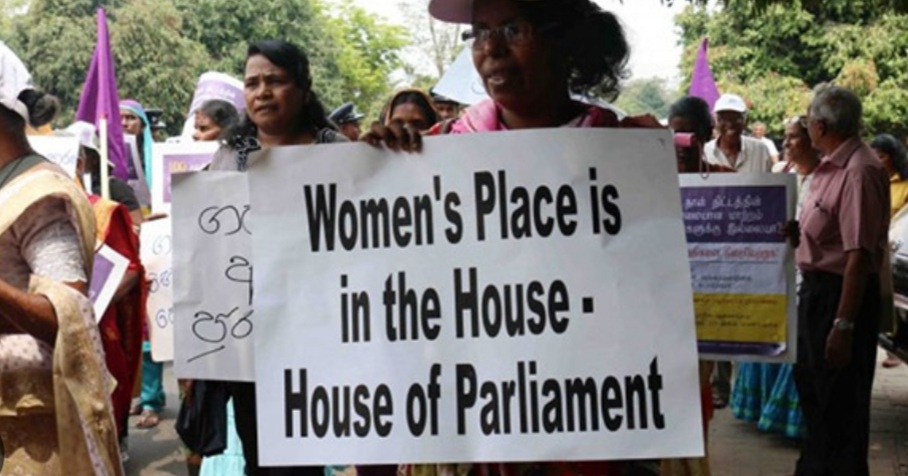The quota system has awarded female politicians in rural districts a chance to lead in politics.
The just ended 2023 harmonised elections showed the importance of the quota system. It brought to light a new breed of female politicians who despite the challenges that come with politics especially for women in patriarchal societies continue to face the challenges head on by taking up political space.
Yvonne Nyati (24) is the youngest Councillor that Zibagwe Rural District Council has ever had. She is ZANU-PF councillor for wards 1, 31 and 33 in the district council and came in through the quota system. “Women were afraid to get into leadership positions but the quota system raised a lot of women who took up those positions. Im of the view that next elections we are likey to have more women campaigning to be councillors,” said Councillor Yvette.

As a young Councillor her desire is to influence development in her area by seeing to it that more schools and clinics are built nearer to the people. A holder of a degree in Human Resource Management, Councillor Yvette has a heart for the people and is excited about her new role and getting the opportunity to represent the needs of people especially women.
“As women, we consume more of the services offered by our councils. We are the ones who take care of the family and are familiar with their needs. Therefore there is a need for more women in local authority politics,” she said.
As a way of empowering women in rural areas, Councillor Yvette has started an income generating project where women are being taught to make detergents.
Section 277 (4) of the Constitution of Zimbabwe establishes a 30% women quota of the total members of the local council. The amendment reads, “an Act of Parliament may provide for the election, by a system of proportional representation referred to in subsection (5), of at least thirty percent of the total members of the local council elected on ward basis as women. Elections to local authority councils must be conducted in accordance with the Electoral Law, which must ensure that the persons referred to in subsection (4) are elected under a party list system of proportional representation which is based on the votes casts for candidates representing political parties in the local authority concerned in the general election for Members of the local authority.”
The women’s quota was introduced in 2013 under the proportional representation system in which 60 females are elected into the National Assembly, six from each of the country’s 10 provinces. Section 124 (b) of the Constitution of Zimbabwe provides for the women quota system of 60 seats in Parliament which are given to each political party based on their tally of votes in the House of Assembly elections for each province. The quota system was set to expire in 2023 but with the advent of the Constitution Amendment Bill No.2 the women’s quota system life span has been extended by 10 years starting from the 2023 general elections and ending in 2033.
Anastacia Tendai Mangani (49) is the newly sworn in Councilor for ward 19, Silobela rural district council. She is also riding on a quota system ticket under ZANU-PF. She says the quota system is a game changer for women in politics who have for the longest time been disadvantaged.

“Most times men want to oppress us so that we don’t take up leadership positions in politics. They have the financial muscle to effectively campaign whilst most of us women don’t. They bribe voters with money and other gifts. They use that to their advantage. They also tarnish our names in society. They spread malicious lies and meant to destroy our credibility going to the extent of saying we are having extra marital affairs,” said Councillor Mangani.
Both her parents have been actively involved in politics and she grew up envying what they did in their community. This drove her to politics from her youth days up till now. Councilor Mangani never got tired or discouraged despite the challenges all around her. She pinpointed financial challenges as the main problem stumbling block for female political participation.
“When you have money it makes things easier because you can help your people do income generating projects, you can reach out to many people. When women don’t have access to resources they are greatly disadvantaged,” she said. Councilor Muringani hopes to improve on service delivery and to be a proper representative of the people in her ward to council.
“We face perennial water shortages and it is my hope that I will be able to fix this problem. I want to fix boreholes which are no longer working, we also need schools that are closer to our people and modern to be built so that our children benefit. I don’t intend to leave anyone behind especially women and youth,” she added.
Zimbabwe is a signatory to various conventions that call for equal representation of women across all sectors. These include the United Nations (UN), Africa Union (AU) and Southern Africa Development Community (SADC) Conventions and Protocols. The Convention on the Elimination of All Forms of Discrimination against Women (CEDAW) upholds women’s right to participate in public life. The (1995) Beijing Platform for Action is an appeal for women’s empowerment. Sustainable Development Goal (SDG) number 5 provides gender equality in governance and all spheres of life.

No responses yet